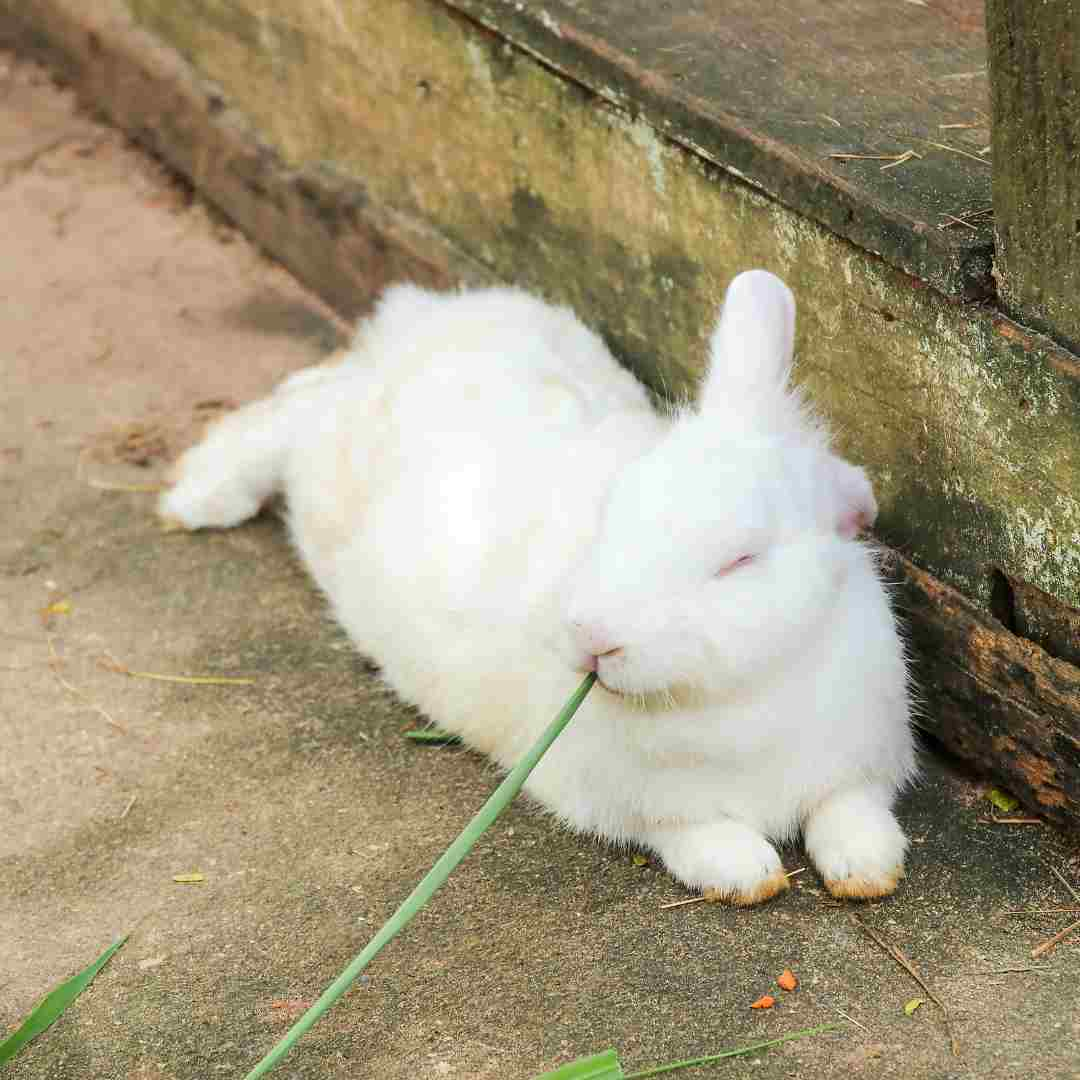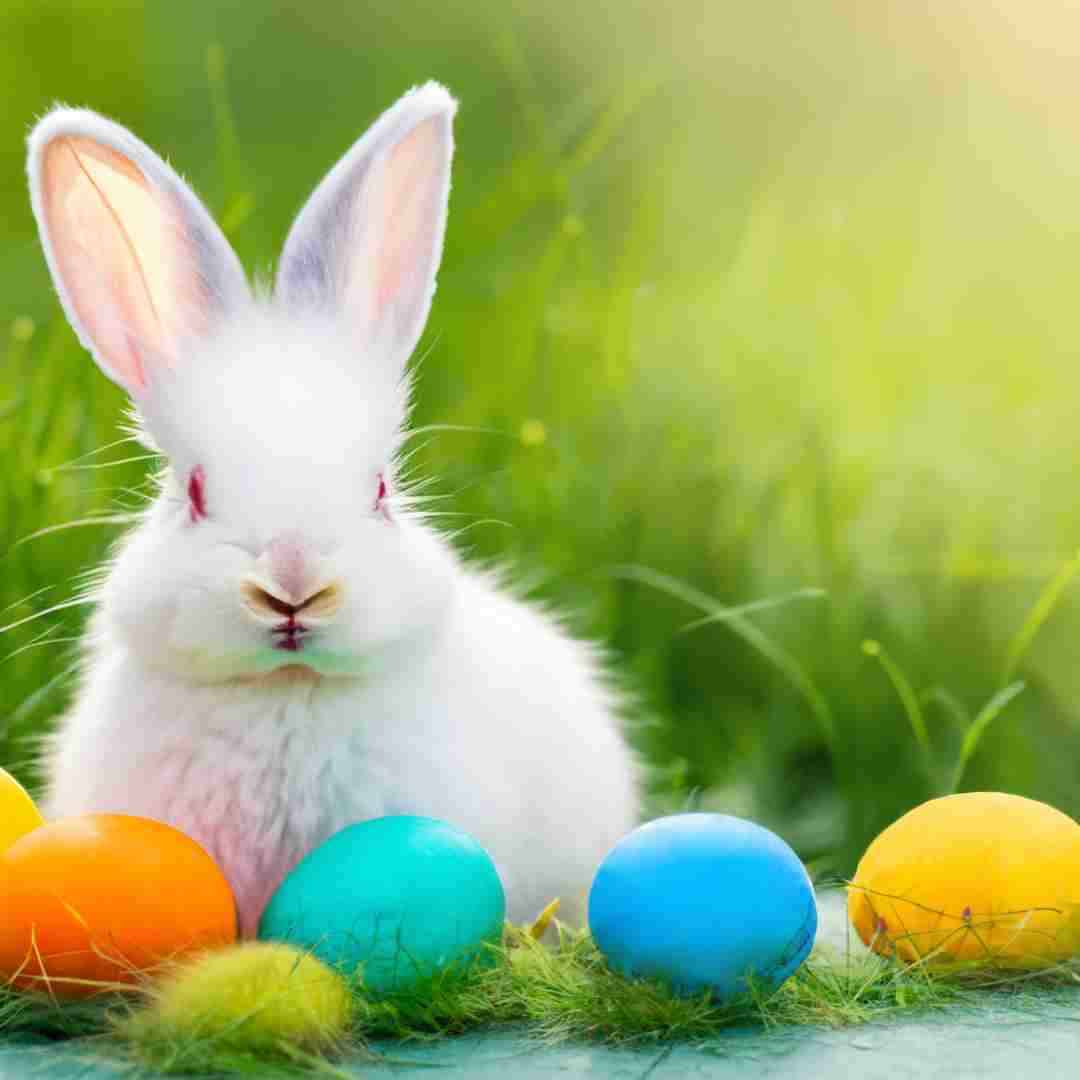Contents Table
Introduction
Reading Your Rabbit's Body Language: Happiness Signs
5 Signs Your Rabbit Is Happy
Rabbit Stress-Free Environment
How to Tell if Your Rabbit Is Happy: The Benefits of Bonding
Recognition and Response to Your Rabbit's Emotional Needs: Understanding What Makes Your Rabbit Happy
Q&A
Conclusion
Introduction
Social rabbits can display happiness and other emotions. To give your rabbit the best care, you must know when they're pleased. Learn how to identify if your rabbit is happy to establish a healthy environment for your pet. Body language, vocalisations, and behaviours of happy rabbits will be discussed in this article. With this information, you can keep your rabbit happy and healthy.
Reading Your Rabbit's Body Language: Happiness Signs
Social rabbits connect with their owners through body language. Understanding rabbit body language can help you attach and care for them. Happy rabbit signs:
1. Relaxed Posture: A relaxed rabbit has upright ears and a loose torso. They may also be lying with stretched legs.
2. Self-grooming: Rabbits clean and maintain their fur. Your rabbit is happy if they groom themselves.
3. Binkying: Rabbits jump when delighted. It usually involves a torso twist and foot flick.
4. Sniffing: Happy rabbits smell the air. This indicates relaxation and joy.
5. Licking: Rabbits lick their owners to show affection. Rabbits that lick you are happy and joyful.
Understand your rabbit's body language to keep them happy and healthy. Hunched posture or excessive grooming indicate distress, so consult a vet.
5 Signs Your Rabbit Is Happy
1. Your bunny Eats: A happy bunny has a healthy appetite. Having your rabbit consume their regular diet and treats indicates healthy health.
2. Your Rabbit is Grooming: Rabbits are meticulous groomers who spend a lot of time cleaning. Your rabbit is delighted if they groom themselves often.
3. Your Rabbit is Active: Rabbits love to play and explore. Activity and engagement in their environment indicate happiness in your rabbit.
4. Your Rabbit is comfortable: Rabbits are normally shy, so finding them comfortable and not easily frightened is a sign of happiness.
5. Your Rabbit is Social: Rabbits are social and love time with their owners. Your rabbit is pleased if they want your attention and engage with you.
Rabbit Stress-Free Environment
Rabbits need a stress-free environment to stay healthy. Rabbits are shy and easily overwhelmed by loud noises, unexpected individuals, and sudden environmental changes. There are several ways to make your bunny happy and stress-free.
Give your rabbit a secure place. This region should be calm and free of animals and noise. Allow adequate room for your rabbit to roam. Give your rabbit lots of boxes and tunnels to hide in when terrified or overwhelmed.
Second, provide your rabbit with new food and water. Hay, fresh vegetables, and a little pellets are rabbits' ideal diet. Feed your rabbit a variety of foods to keep them interested.
Third, give your rabbit lots of toys and hobbies. This will keep kids busy and avoid boredom. To keep your rabbit occupied, provide chew toys, balls, and tunnels.
Finally, treat your bunny gently. Pick up your bunny softly and gently. Use a soothing voice and prevent rapid movements. This will reassure your bunny.
Make your rabbit's environment stress-free with these methods. This will keep your rabbit happy and healthy.
How to Tell if Your Rabbit Is Happy: The Benefits of Bonding
Bonding with your rabbit is key to their happiness and wellbeing. Rabbits thrive in company. You and your rabbit build trust and understanding by bonding. This link makes your rabbit feel comfortable and can extend their lifespan.
Bonding with your rabbit helps you understand their wants and behaviours. This might help you give them the greatest care. Since your rabbit will feel more comfortable with you, bonding reduces tension and anxiety.
There are several methods to bond with your rabbit. Bonding with your rabbit through play, treats, and time is fantastic. Reward your rabbit for good behaviour with positive reinforcement.
To discover if your rabbit is pleased, watch their body language. Ears high and eyes open indicate a happy bunny. They may be grooming or hopping. Ears down and eyes narrowed indicate fear or anxiety in rabbits. They may be hiding or crouched.
Bonding with your rabbit is key to their happiness and wellbeing. You may build trust and understanding with your pet by understanding their needs and behaviours. This link makes your rabbit feel comfortable and can extend their lifespan. You can determine if your rabbit is happy by their body language.
Recognition and Response to Your Rabbit's Emotional Needs: Understanding What Makes Your Rabbit Happy
Rabbits are smart and gregarious but need lots of attention. To keep your rabbit healthy, you must recognise and address their emotional requirements. Knowing what makes your rabbit happy is the first step to offering the finest care.
Providing a safe and pleasant environment is the key to keeping your rabbit happy. This entails making sure their living space is big enough to move around and clean and safe. To stay occupied and active, rabbits need lots of toys and activities.
Rabbits need socialisation too. They need regular handling and space to explore. Rabbits need friendship from other rabbits or humans. They'll feel safe and pleased.
For happiness and health, rabbits require a good diet. This should include fresh veggies, hay, and a few pellets. Rabbits need always have fresh water.
Finally, rabbits require regular vet visits to stay healthy and happy. Regular checkups, immunisations, and parasite control are included.
You can keep your rabbit happy and healthy by recognising and meeting their emotional requirements. A safe and comfortable home, plenty of social interaction, a balanced diet, and regular veterinary treatment will keep your rabbit happy and healthy.

Q&A
1. What are joyful bunny signs?
A cheerful rabbit is alert, interested, and has a soft, glossy coat. Hopping, jogging, and playing are also options.
2. How can I tell my bunny is happy?
Complacent rabbits are attentive, interested, and have a soft, glossy coat. Self-grooming, eating, and socialising are also possible.
3. What are happy bunny behaviours?
Rabbits will hop, run, and play happily. Self-grooming, eating, and socialising are also possible.
4. How can I tell my bunny is stressed?
Stressed rabbits are uptight, less interested, and have dull coats. They may also hide, avoid, or attack.
5. What should I do for a sad rabbit?
If your rabbit is stressed, find out why and fix it. This may involve providing a safe and comfortable home, enrichment activities, and enough exercise and socialisation for your rabbit.
Conclusion
Finally, various signals can indicate a rabbit's happiness. These include a comfortable posture, soft physique, bright and attentive expression, readiness to interact, and willingness to feed. These signals suggest your rabbit is happy and content.
